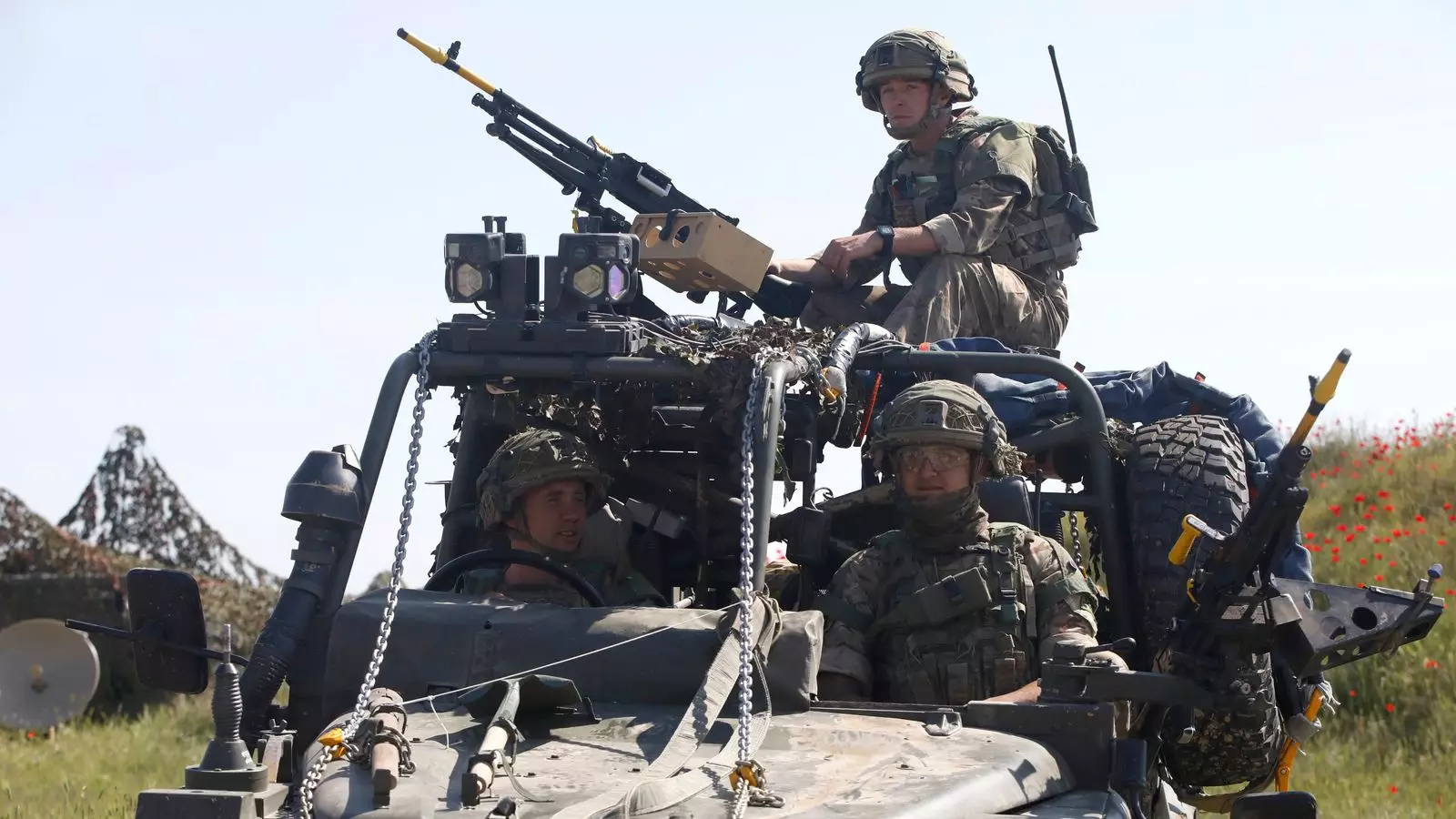In light of ongoing hostilities in Ukraine, there is growing discourse among Western officials regarding the possible deployment of European troops to support peacekeeping and security efforts in the region following a potential ceasefire with Russia. This analysis will delve into the implications of such deployments, the necessary strategic considerations, and the broader geopolitical context surrounding this potential intervention.
Recent discussions among Western officials have floated the idea of sending a force consisting of up to 30,000 troops from Britain and other European nations into key Ukrainian urban areas, ports, and critical infrastructures such as nuclear power plants. This force is not intended for frontline interventions, which distinguishes it from traditional deployments of peacekeeping soldiers. Rather, the proposed troops would serve as a “reassurance” presence aimed at promoting stability and encouraging the return of the millions of displaced Ukrainians who fled amid the conflict.
This distinctive approach raises questions about the strategic rationales behind such a deployment. The mere presence of foreign troops could potentially offer a level of assurance to a populace battered by the trauma of war, thereby helping to restore normalcy. Furthermore, the mission may also involve air policing operations, a concept already operational in the Baltic states and Romania, which would facilitate the safe reopening of Ukrainian airspace to commercial flights—a critical step in rejuvenating the nation’s economy.
Another critical aspect of the proposal is the emphasis on securing Ukraine’s airspace and coastline. The use of advanced surveillance technologies, including satellites, drones, and spy planes, could enhance situational awareness and deter potential hostile actions. The inclusion of air policing missions is particularly salient, as it would not only serve to protect civilian air traffic but also bolster the overall security perimeter surrounding Ukraine.
Additionally, there is a suggestion of deploying warships to the Black Sea to ensure maritime safety and address crucial demining tasks necessary for trade. Such maritime operations are vital for re-establishing the flow of goods and services, which has been hampered by the ongoing conflict. The joint efforts between the Royal Navy and Nordic allies, as mentioned by President Volodymyr Zelenskyy, underscore the strategic alliances forming to address these challenges.
While the discussions around troop deployments are gaining traction among European allies, the influence of the United States looms large. Sir Keir Starmer, a prominent UK political figure, has alluded to the importance of a US “backstop” for the success of any reassurance mission. This indicates that American military presence or support could be crucial in deterring any aggressive maneuvers from Russia.
Should the US choose to engage, it could involve deploying military aircraft or providing logistical support from bases outside Ukraine. The lack of decisive statements from US political leaders adds uncertainty to the proposed mission, especially in light of statements from former President Trump’s administration, which has categorically rejected sending American troops into Ukraine.
President Zelenskyy has been vocal about the extent of Ukraine’s security requirements, expressing a desire for robust guarantees from NATO allies. He has illustrated a vision for a future where Ukraine could amass a one-million-strong armed force, backed by a comprehensive air defense system. The desire for sophisticated American systems like the Patriot missile defense underscores a growing urgency for Ukraine to fortify its defenses independently should international support falter.
In light of these considerations, the prospect of a fully-fledged international security force totaling upwards of 110,000 personnel, as envisioned by Ukrainian leadership, seems more ambitious compared to the current proposals being discussed among European nations. Nevertheless, the realization of such efforts hinges on diplomacy, timely coordination among allies, and the navigation of geopolitical realities that often complicate collective military actions.
While the notion of deploying European troops in Ukraine serves to display solidarity and provide a safety net for a nation in turmoil, it also underscores the inherent complexities of international military cooperation and the pressing need for a united front in tackling the challenges posed by ongoing geopolitical tensions.

Leave a Reply